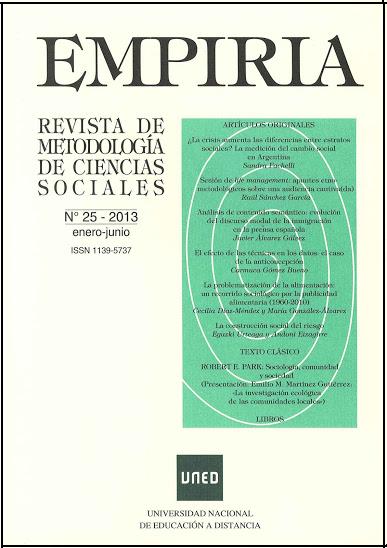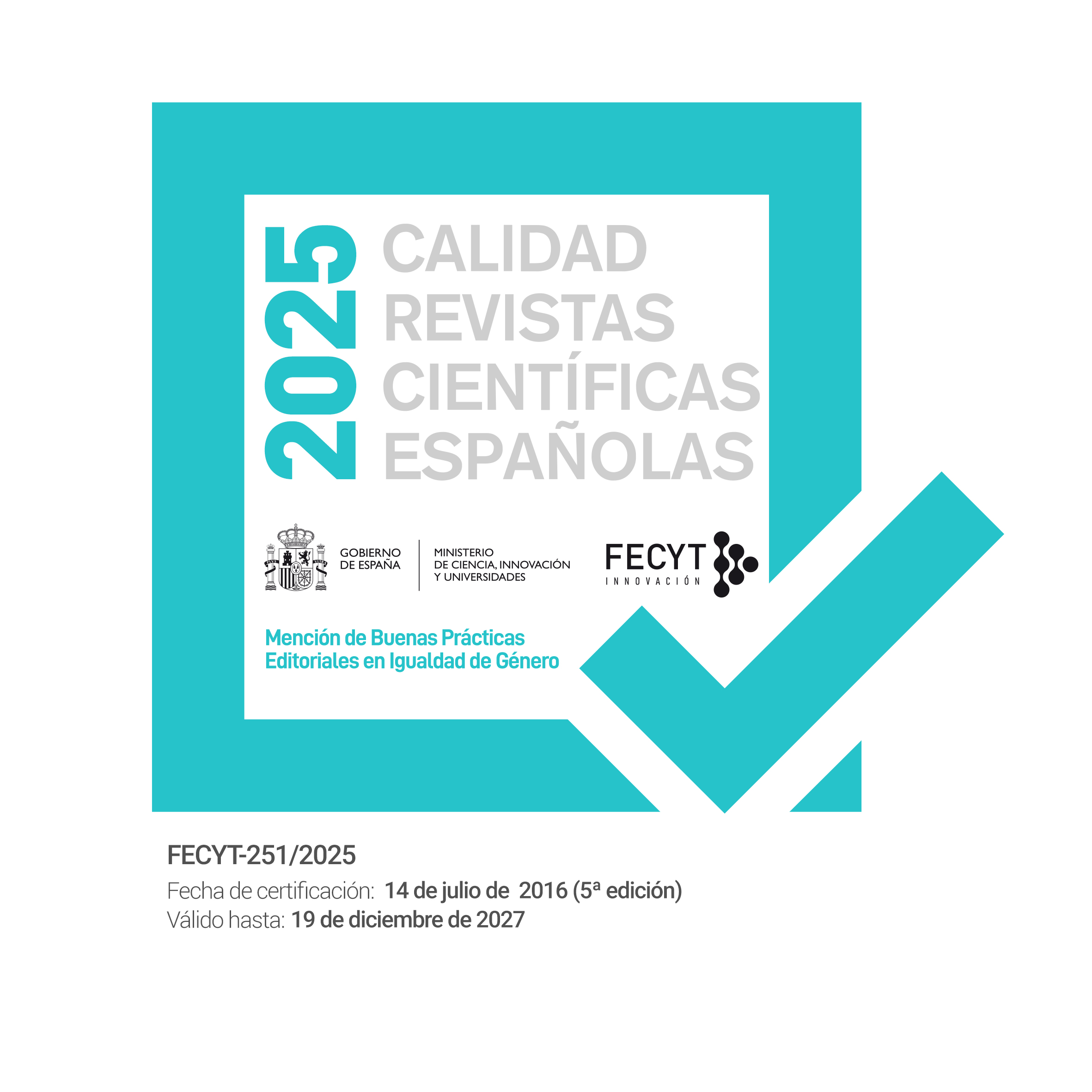The effect of techniques on data: the case of contraception
DOI:
https://doi.org/10.5944/empiria.25.2013.3799Keywords:
quantitative and qualitative techniques of social research, comparative analysis of surveys, contraceptive prevalence, use of contraceptive methods, coitus interruptus or withdrawalAbstract
Through the examination of surveys we carried out a comparative analysis on the use of contraceptive methods in national and international settings. We then contrasted these data with those obtained through qualitative techniques: interviews and discussion groups, in the context of Andalusia (Spain). This geographical restriction corresponded to another observation we conducted, focusing on one specific method: coitus interruptus. We found discrepancies in the prevalence of contraceptive methods reported in different surveys, attributable in part to the effect of the data-gathering techniques employed, and in part to the characteristics of the object which we intended to evaluate. The definition of the population, the mode of data collection, as well as the drafting of the questions, which referred to different periods of time, were the aspects which introduced most variations. As regards the object of our study, the low stability of some contraceptive practices tended to hamper their measurement. Differences encountered between the information obtained through quantitative or qualitative procedures reveal, on the one hand, the complexity of the object of our study and its appraisal (involving the numerous variables to be taken into account when comparing and interpreting data), and on the other, the complementary of the data-gathering techniques.Downloads
Download data is not yet available.
Downloads
How to Cite
Gómez Bueno, C. (2013). The effect of techniques on data: the case of contraception. Empiria. Revista de metodología de ciencias sociales, (25), 93–120. https://doi.org/10.5944/empiria.25.2013.3799
Issue
Section
Artículos
License
Los autores que publican en esta revista están de acuerdo con los siguientes términos:a) Los autores conservan los derechos de autor y garantizan a la revista el derecho de ser la primera publicación del trabajo al igual que licenciado bajo una Licencia Internacional Creative Commons CC BY-NC-SA 4.0.
b) Se permite y se anima a los autores a difundir electrónicamente las versiones pre-print (versión antes de ser evaluada) y/o post-print (versión evaluada y aceptada para su publicación) de sus obras antes de su publicación, ya que favorece su circulación y difusión más temprana y con ello un posible aumento en su citación y alcance entre la comunidad académica.












